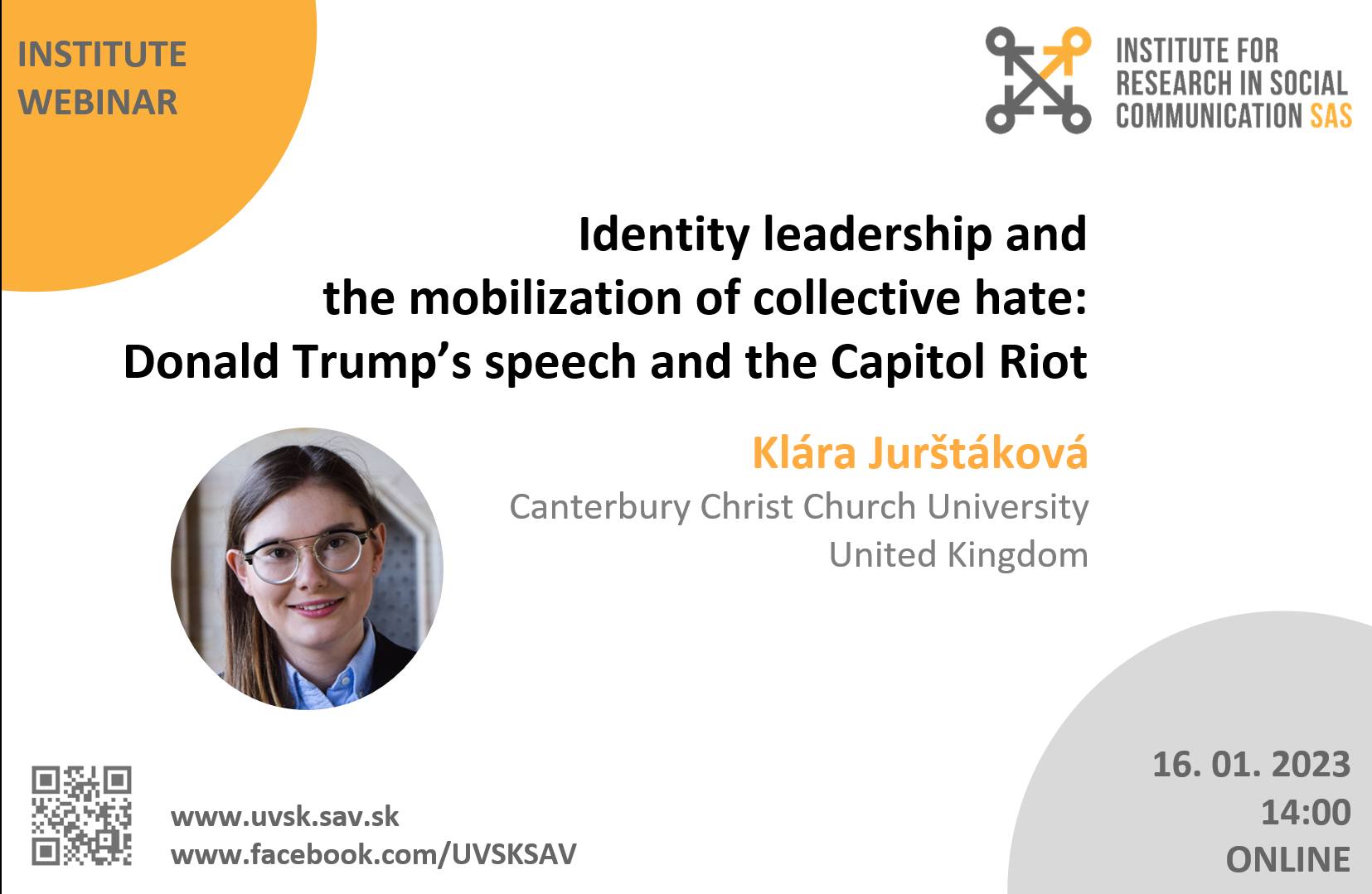We cordially invite you to attend the Institute Seminar entitled Identity leadership and the mobilization of collective hate: Donald Trump’s speech and the Capitol Riot”, where we will welcome a guest. Klára Jurštáková will present the results of a study examining Donald Trump’s speech in January 2021 following the election of President Biden in order to understand the role of identity-based leadership and mobilization in collective hatred. Please feel free to pass this information on to your colleagues.
The seminar will take place online. If you are interested in participating, please fill out the simple form: https://forms.gle/HFVGoztheubG8yJPA
On the day of the seminar, you will be sent Zoom meeting access details. The maximum number of participants outside of the institute is 50 people.
Identity leadership and the mobilization of collective hate: Donald Trump’s speech and the Capitol Riot
Klára Jurštáková, Canterbury Christ Church University, United Kingdom
Monday 16.01. 2023, 14:00 – 15:30 CET, online
On January 6th, supporters of Donald Trump stormed the United States Capitol in Washington, D.C. in advance of President-elect Joe Biden’s victory being formalized. The storming was preceded by a “Save America” rally during which Trump discredited the election results and urged his followers to act. The speech allows for an examination of processes of identity leadership, particularly in relation to the ways in which leaders rhetorically construct social groups and the relations between them, providing the context within which engaged followership characterized by collective hate can develop. We present a theoretically driven thematic analysis of Donald Trump’s speech that took place before the storming of the Capitol on January 6th, 2021. Our analysis extends the five-step social identity model of the development of collective hate. First, the speech featured core ingroup and outgroup categories, namely an ingroup (Americans) that was positioned against enemy outgroups (e.g., media, Democrats, ‘weak’ Republicans). Second, ingroup and outgroup categories were moralized in that ingroups were constructed as patriotic/virtuous whereas outgroups were portrayed as dishonest/thieving. Third, intergroup relations were positioned as antagonistic, with outgroups seeking to exterminate a victimized ingroup. Fourth, Trump empowered the ingroup by highlighting its victimized yet agentic status, highlighting his followers’ obligation to act. Our analysis extends previous findings by highlighting how leaders mobilize followers to engage in hateful actions.







